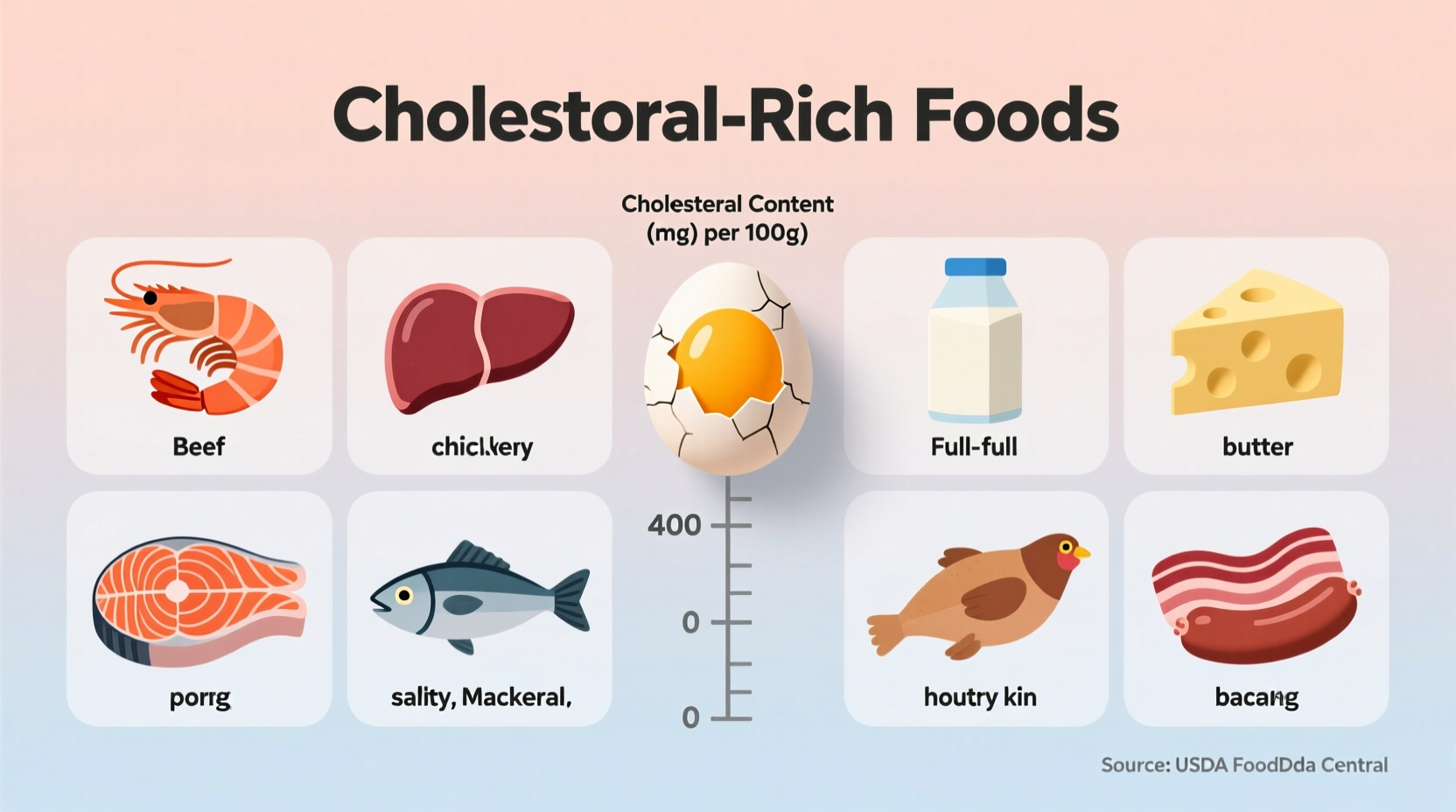Dietary cholesterol is found exclusively in animal-based foods, with the highest concentrations in organ meats, egg yolks, and shellfish. Plant-based foods contain zero cholesterol. Current research shows that for most people, dietary cholesterol has less impact on blood cholesterol than saturated and trans fats.
Understanding Cholesterol in Your Food: What You Need to Know
When you search for "what foods contain cholesterol," you're likely trying to make informed choices about your diet and heart health. Let's cut through the confusion with science-backed facts that help you navigate cholesterol in your daily meals.Cholesterol Fundamentals: Separating Fact from Fiction
Many people don't realize that cholesterol only comes from animal products. This biological compound is essential for cell structure and hormone production, but your body makes all it needs. The cholesterol question isn't about eliminating it completely—it's about understanding which foods contribute to your intake and how they affect your health.| Food Category | Cholesterol Content (per 3oz serving) | Key Examples |
|---|---|---|
| Organ Meats | 300-2,000mg | Liver (beef: 1,260mg), brains, kidney |
| Egg Yolks | 185mg per yolk | Whole eggs (yolk contains all cholesterol) |
| Shellfish | 50-200mg | Shrimp (179mg), squid, lobster |
| Fatty Meats | 60-90mg | Beef, pork, lamb (higher in fattier cuts) |
| Dairy Products | 20-100mg | Butter (71mg/oz), cheese (28mg/oz cheddar) |
Plant-Based Foods: Naturally Cholesterol-Free
All fruits, vegetables, grains, nuts, and seeds contain zero cholesterol. This fact often surprises people who confuse dietary cholesterol with saturated fats (which can be found in some plant oils like coconut and palm oil). Understanding this distinction is crucial for making informed dietary choices.
The Evolution of Cholesterol Science: What's Changed
Research on dietary cholesterol has evolved significantly over the past decades:- 1960s-1980s: Strict limits recommended (300mg/day), with emphasis on avoiding eggs and shellfish
- 1990s-2000s: Focus shifted to saturated and trans fats as primary dietary concerns for heart health
- 2015-Present: Dietary Guidelines for Americans removed specific cholesterol limits, recognizing minimal impact for most people
When Cholesterol Content Matters Most
While dietary cholesterol affects most people less than previously thought, certain situations warrant closer attention:- Individuals with familial hypercholesterolemia (genetic condition)
- People with diabetes or metabolic syndrome
- Those who are "hyper-responders" (about 15-25% of population)
- Patients with existing heart disease
Practical Guidance for Managing Cholesterol Intake
Rather than focusing solely on cholesterol content, consider these evidence-based strategies:- Prioritize fat quality: Replace saturated fats with unsaturated fats (avocado, olive oil, nuts)
- Don't fear eggs: For most people, 1-2 whole eggs daily fits within a heart-healthy pattern
- Balance your plate: Fill half with vegetables, one-quarter with lean protein, one-quarter with whole grains
- Read labels wisely: Watch for "partially hydrogenated oils" (trans fats) which are more harmful than dietary cholesterol
- Cook smart: Use herbs and spices instead of butter for flavoring
Common Misconceptions Clarified
Let's address some widespread misunderstandings about cholesterol in foods:- Myth: All high-cholesterol foods are unhealthy
- Fact: Shellfish like shrimp are high in cholesterol but also provide lean protein and omega-3s
- Myth: Eating cholesterol directly raises blood cholesterol
- Fact: For 70-85% of people, dietary cholesterol has minimal impact on blood levels
- Myth: Plant-based "cholesterol-free" labels indicate special processing
- Fact: All whole plant foods naturally contain zero cholesterol











 浙公网安备
33010002000092号
浙公网安备
33010002000092号 浙B2-20120091-4
浙B2-20120091-4